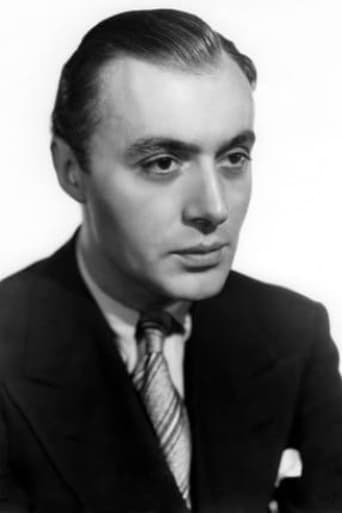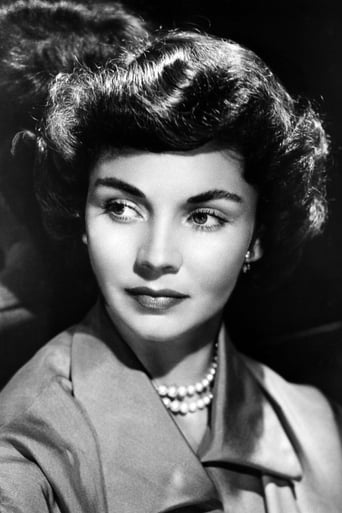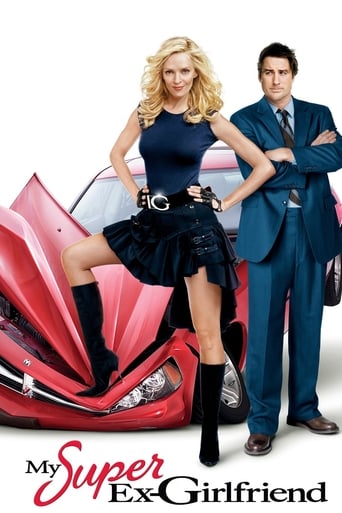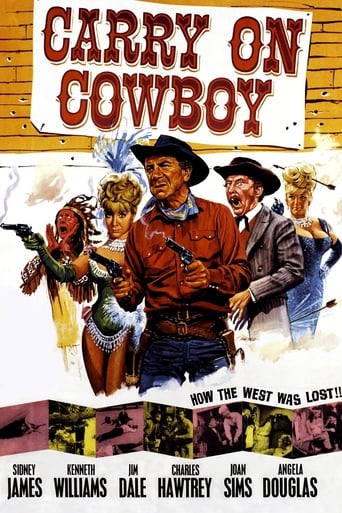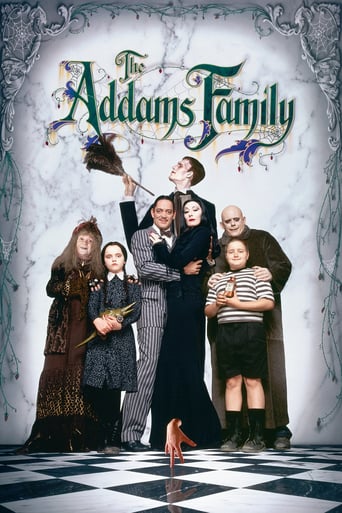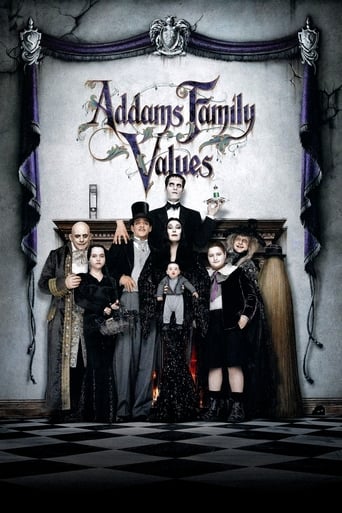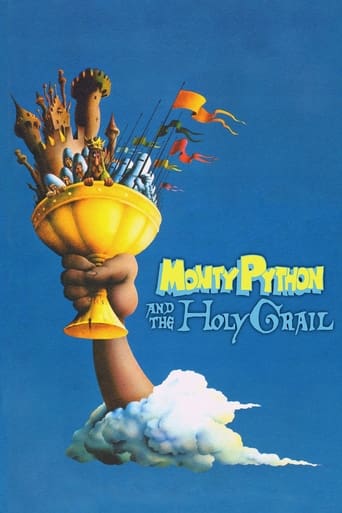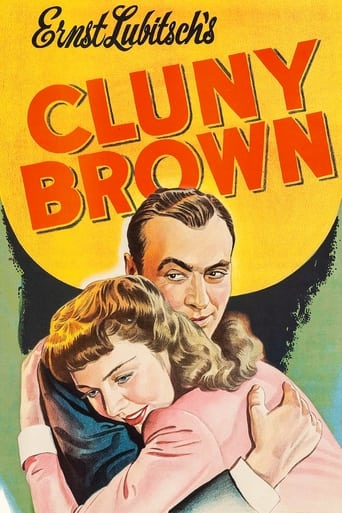
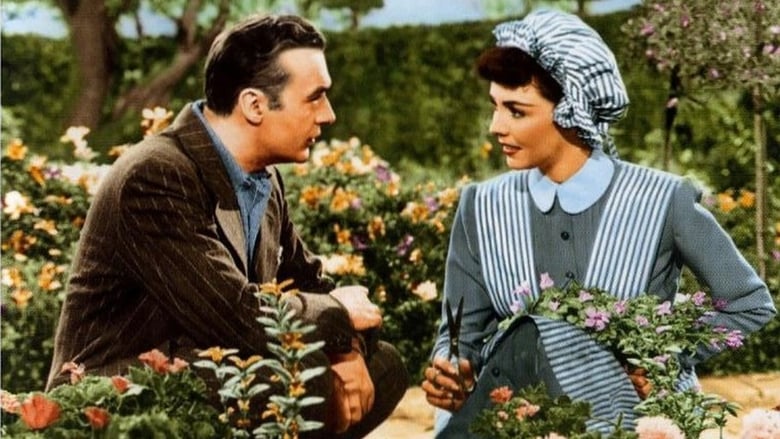
Cluny Brown (1946)
Amateur plumber Cluny Brown gets sent off by her uncle to work as a servant at an English country estate.
Watch Trailer
Cast
Similar titles
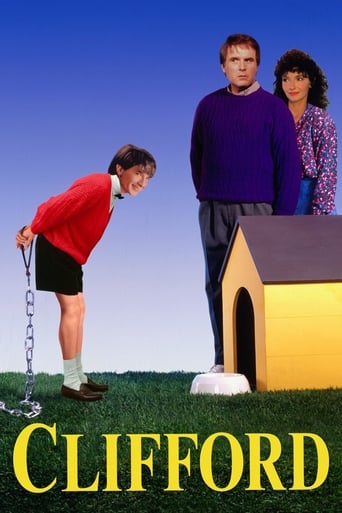
Reviews
The film never slows down or bores, plunging from one harrowing sequence to the next.
It's easily one of the freshest, sharpest and most enjoyable films of this year.
This movie tries so hard to be funny, yet it falls flat every time. Just another example of recycled ideas repackaged with women in an attempt to appeal to a certain audience.
By the time the dramatic fireworks start popping off, each one feels earned.
Ernest Lubitsch used the charms and abilities of his leads Charles Boyer and Jennifer Jones to get some maximum performances out of them and make his next to last film Cluny Brown a great success. I've not heard that Lubitsch had to contend with Jennifer's husband and Svengali David O. Selznick on the set, but it's a safe bet they clashed because Selznick could not help interjecting himself where his wife was concerned.Jones is the daughter of English plumber Billy Bevan and the most interesting thing is that in this English setting her non-English speech pattern is perfectly acceptable even against Bevan's cockney accent. Jones was also perfectly acceptable in another English part in Love Letters and certainly got no criticism. The camera always loved Jennifer Jones and in parts like Cluny Brown as the girl next door she lit up the screen.Boyer as often as not played a whole lot of European types not necessarily French. Here he's a Czech refugee over in the United Kingdom fleeing from Mr. Hitler. The film is set in Neville Chamberlain Great Britain and Boyer is one of many bringing unpleasant news to the British public.After Bevan rescues Jones from Boyer and Reginald Gardiner Jones is placed as a maid at a country estate where she meets Boyer again. There should be some class barriers, but Boyer breaks them down and Jones is more than agreeable.Lots of agreeable Lubitsch touches and a minimum of Selznick interference make Cluny Brown still a treat after over 60 years.
That's a funny comedy that takes England as the target of its humor, the England of 1938 and what's more the aristocracy and their twisted class relations with their servants. It is humorous by the way it shows how an Eastern European can easily trap the aristocrats in 1938 with the sound of Prague, some good manners and a little bit of anti-nazism. That Adam Belinski is able to charm these English aristocrats, especially the son who wants to go and fight against Hitler, and his parents who do not even ask a question, or hardly. That Czech refugee is able to live on that noble family for a while before leaving for America along with the maid who arrived the same day as him and he had met in London before. The comedy is funny because that girl, who is not an aristocrat, far from it, does all the mistakes you can imagine English etiquette is going to frown upon severely. She pretends to be a plumber and she repairs some toilet or washstand in a jiffy in front of a middle-class family, their guests and the pharmacist who was getting enamored. The result is the departure of all the guests, after the departure of the pharmacist's mother, and then she is practically rejected. She does not know what class differences are. She will of course be captured by the Czech refugee and taken to America where he is going to become a popular writer and she will finally be away from silly class distinctions. It is funnily absurd and the Lord and his Lady are just passé and old-fashioned, quaint is probably the word if we want to remain nice. Lubitsch takes great pleasure at showing how silly such class-distinctions are. The whole comedy is more humorous than really funny and that humor always remains polite, even at times mundane, though in the light American way.Dr Jacques COULARDEAU, University Paris 1 Pantheon Sorbonne, University Versailles Saint Quentin en Yvelines, CEGID
"Cluny Brown" had quite an impact on me when I saw part of it as a child. I'm sure my feelings had to do with the luminous beauty of Jennifer Jones and wanting to be just like her when I grew up. Jones has the title role of an imaginative young woman who, being the niece of a plumber, doesn't mind picking up a hammer herself once in a while and having a good whack at the pipes. It gets her into some trouble at the apartment of Hilary Ames (Reginald Sinclair) when she arrives before a party to clear out his sink before his guests arrive. There she meets Adam Belinski, a Czech academician who's on the run from Hitler. Well, that's who the very earnest Andrew Carmel (Peter Lawford) assumes he is...Belinski never actually says.When her uncle finds Cluny drunk and on the couch at the Ames apartment, he puts her into service. She winds up working at the Carmel country estate, where Belinski comes to stay. Attracted to her, he sets about aggravating the local pharmacist, Mr. Wilson (Richard Haydn) who is courting Cluny, and getting involved with Andrew's romance with Betty Cream (Helen Walker).This is a very sweet, light comedy from Lubitsch that touches on not only the class system in England but the attitude of the upper class toward the impending war. As in the Fox film "This Above All," the upper class in "Cluny Brown" seems annoyed by the mere thought of war and hope the nonsense will just go away. As for Cluny, born to her class, she's expected to work and behave a certain way, though it isn't really her nature.The performances are all very good, with Boyer a delight as Belinski, a character perhaps modeled on the Czech freedom fighter Jan Mazurek - though he basically doesn't act in danger or worried and manages to hit Andrew up for money. One is never really sure throughout the film what he's up to. Richard Haydn is hilarious as Cluny's suitor Mr. Wilson, one of the best scenes taking place when he plays the harmonium for her and she all but swoons. As his mother, all Una O'Connor does is cough, but that's all she needs to do. Playing opposite boyish Peter Lawford, Helen Walker seemed too old for the part of Betty. The other supporting players are all excellent, including Sara Allgood, Reginald Owen, and Margaret Bannerman.David O. Selznick saw Jennifer Jones in his outer office, and it was love at first sight. It's easy to see why. She is radiant and spirited as Cluny, her vivid imagination shining through her eyes and smile. A wonderful presence - gentle, vulnerable, and guileless."Cluny Brown" isn't at the top of Lubitsch's best - it's uneven and doesn't have enough of a plot. It's entertaining nonetheless, and the ending is pure joy.
You feel the Lubitsch touch many times along the movie but it doesn't work very well. There are funny situations, funny dialogues but it never takes the shape of some wild comedies Lubitsch directed before.What's lacking?A good plot. There was a good idea but the movie gets stuck in an english manor.Charles Boyer plays a character who doesn't deserve the leading role. This Czech writer is a scrounger and quite a smooth-tongued coward.Jennifer Jones plays ingénue Cluny Brown, a girl with a naive aspiration for 'her place'.So different, so close. Well there was a development in The Shop Around the Corner. Here the development is flat and the happy pair has little to arouse emotion.Too many funny situations are based on the english composure. That's a bit light for a whole comedy. But Lubitsch gave us comedies with lots of laughs and fun which largely make up for that minor ultimate opus.
